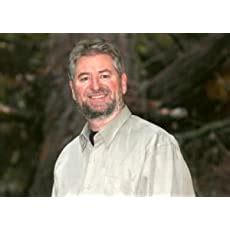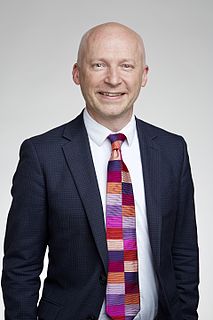A Quote by Terence McKenna
The world is mental in some way that we do not yet understand, but that which we're edging toward understanding. And the world is made of language. I can't say that enough. Whenever we get into these discussions about reality, or effects in space and time, we are operating outside this assumption that the world is made of language.
Related Quotes
The world is MADE up of language. We can SAY that the world is composed of little demons doing calisthenics, each one the size of a pissant's eyebrow.... Or we can SAY the world is made of tiny wave mechanical packets of matter hurling through space at near the speed of light.... But notice that what we get each time are WORDS.
Yet some of my friends tell me they understand 50 percent of what my mother says. Some say they understand 80 to 90 percent. Some say they understand none of it, as if she were speaking pure Chinese. But to me, my mother's English is perfectly clear, perfectly natural. It's my mother tongue. Her language, as I hear it, is vivid, direct, full of observation and imagery. That was the language that helped shape the way I saw things, expressed things, made sense of the world
Being a slow reader would normally be a deficiency; I found a way to make it an asset. I began to sound words and see all those qualities - in a way it made words more precious to me. Since so much of what happens in the world between human beings has to do with the inconsideration of language, with the imprecision of language, with language leaving our mouths unmediated, one thing which was sensuous and visceral led to, in the use of language, a moral gesture. It was about trying to use language to both exemplify and articulate what good is.
The image is a great reminder how we create our world through interpretations made up of language and symbols. Our language and symbols are always incomplete versions of a greater reality. Here is why inquiry is such a powerful tool when compared to simple advocacy. Inquiry allows us to discover what might be outside the cave instead of arguing about the shadows on the wall.
You have this world of mathematics, which is very real and which contains all kinds of wonderful stuff. And then we also have the world of nature, which is real, too. And that, by some miracle, the language that nature speaks is the same language that we invented for mathematics. That's just an amazing piece of luck, which we don't understand.
The Hopi, an Indian tribe, have a language as sophisticated as ours, but no tenses for past, present and future. The division does not exist. What does this say about time? Matter, that thing the most solid and the well-known, which you are holding in your hands and which makes up your body, is now known to be mostly empty space. Empty space and points of light. What does this say about the reality of the world?
Science begins with the world we have to live in, accepting its data and trying to explain its laws. From there, it moves toward the imagination: it becomes a mental construct, a model of a possible way of interpreting experience. The further it goes in this direction, the more it tends to speak the language of mathematics, which is really one of the languages of the imagination, along with literature and music. Art, on the other hand, begins with the world we construct, not with the world we see. It starts with the imagination, and then works toward ordinary experience.
A ruler must learn to persuade and not to compel... he must lay the best coffee hearth to attract the finest men... a good ruler has to learn his world's language... it's different for every world... the language of the rocks and growing things... the language you don't hear just with your ears... the Mystery of Life... not a problem to solve, but a reality to experience... Understanding must move with the flow of the process.
But actually a code is a language for translating one thing into another. And mathematics is the language of science. My big thesis is that although the world looks messy and chaotic, if you translate it into the world of numbers and shapes, patterns emerge and you start to understand why things are the way they are.





































